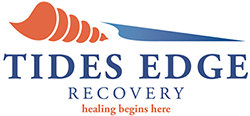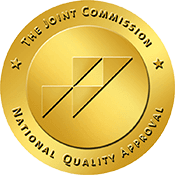In order to overcome an addiction to meth, you need to go through a meth detox center in Jacksonville, Florida. However, many individuals are nervous about the prospect of meth withdrawal symptoms. While meth withdrawal can be uncomfortable, having the support of staff at Tides Edge Detox Center can make all the difference. Learn more about the most common symptoms of a meth withdrawal to feel more prepared and confident about the upcoming journey to recovery.
Are you considering going through meth withdrawal in Florida? If so, finding support throughout the detox is essential. At Tides Edge Detox Center, we are committed to ensuring that each person in our program gets through withdrawal safely and in relative comfort. To learn more about our services, please contact our Florida drug and alcohol detox center today by calling 866.723.3127.
How Long Do Meth Withdrawal Symptoms Last?
No two people will experience meth withdrawal in exactly the same way. The length of the withdrawal stage will also depend on a client’s health, age, the severity of their addiction, and if there are any other co-occurring disorders present. Despite these differences, most clients will follow a general timeline for meth withdrawal.
First, it’s worth noting that meth withdrawal is completed in two stages. The first is acute withdrawal. The second stage is known as subacute withdrawal.
During acute withdrawal, clients can expect a number of withdrawal symptoms. Some of these are physical, and some are psychological. This stage typically takes one week to 10 days to complete.
Subacute withdrawal, on the other hand, may take as long as two weeks to complete. This stage of withdrawal largely revolves around ongoing cravings. Even after withdrawal symptoms end, clients might crave meth. That’s one major reason it makes sense to complete detox in a safe and secure Florida detox center without drug access.
Signs of Meth Withdrawal
Speech Impairment
During a meth withdrawal, many clients will experience speech impairment. When this happens, clients can have a hard time speaking coherently. They might mumble, or they might have a tough time remembering the words they want to use. While this is short-lived, it can be frustrating for clients in withdrawal who want to express themselves clearly.
Physical Symptoms
There aren’t many physiological meth withdrawal symptoms that prospective clients need to be aware of. One of the most obvious symptoms, however, is red and itchy eyes. Clients who are in the middle of a meth detox program may also have very itchy eyes. Itching them only makes them redder, and it can become uncomfortable or just annoying.
Increased Appetite
When people are under the influence of meth, their appetite almost entirely disappears. That’s one of the main reasons why people addicted to meth often lose weight drastically. Eating just isn’t a priority when meth is being abused. During withdrawal, however, that all changes.
One of the most common meth withdrawal symptoms is seeing a big increase in appetite. Many clients are very hungry, and many do legitimately need to put on weight. At Tides Edge Detox Center, clients will have access to healthy meals and snacks. This makes it easier to stay healthy and consume lots of vitamins and minerals during detox.
Changes to Sleep Patterns
Meth is a stimulant, which means that people sleep very little when under the influence of meth. Once meth withdrawal begins, it is common to feel very tired. Without a stimulant to keep you awake, you may sleep a lot. Alternatively, some clients experience insomnia.
Psychological Withdrawal Symptoms
Some of the most severe symptoms when coming off of meth are psychological rather than physical. Many people find that during withdrawal, they experience lifelike dreams or nightmares. Sometimes, it is even possible to experience very lifelike hallucinations.
It is common to experience sadness, hopelessness, or depression. Anxiety is common, and so are panic attacks. Suicidal thoughts are also possible in some cases. Many people find that their mood swings are more extreme during withdrawal.
It is also typical to experience cravings for meth during withdrawal. These cravings can be intense and may make it difficult to stay away from the drug.
What Helps With Meth Detox Symptoms?
Experiencing meth withdrawal can be an incredibly challenging process, but it’s important to remember that healing is possible, and support is available. There are several approaches that can help ease the symptoms and provide comfort during this time.
Professional treatment programs offer structured care and access to medical professionals who can monitor progress and provide essential support. Therapy, including cognitive-behavioral therapy (CBT), can equip you with coping strategies and help address the underlying causes of substance use.
Get the Help You Need Today From Tides Edge Detox Center
If the goal is to find a meth detox program that is safe and effective, then Tides Edge Detox Center in Jacksonville, Florida, might be the answer. Clients can look forward to comprehensive care and a focus on long-term sobriety. In addition to our meth detox programs, all of the following are available for clients:
- Alcohol detox programs
- Heroin detox programs
- Prescription drug detox programs
- Cocaine detox programs
If you or someone you know is struggling with an addiction to meth, reach out to us today. We can help you detox safely and comfortably so that you can begin your journey to recovery.
Don’t let meth withdrawal symptoms stop you from sobriety. At Tides Edge Detox Center, you can learn how to overcome meth addiction for good. Call 866.723.3127 or use our convenient online contact form to get on the road to sobriety.









